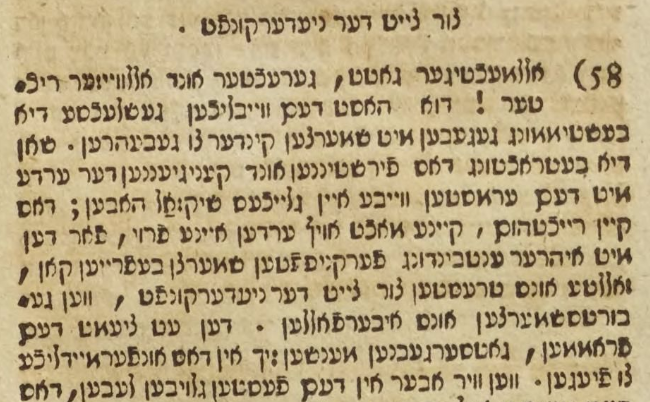TOGGLE COLUMNS (on/off):ADJUST COLUMN POSITIONS: select the column header cell and drag it where you want. show me!COPY INDIVIDUAL COLUMN(S): use CopyTables, a browser extension.
| Contribute a translation | Source (English) |
|---|---|
“Bless the Lord, O my soul, and all that is within me bless His holy name. Bless the Lord, O my soul, and forget not all His benefits: who forgiveth all thine iniquities, who healeth all thy diseases; who redeemelh thy life from destruction; who crowneth thee with loving-kindness and tender mercies.”[1] Psalms 103:1-4. | |
How dark was everything around me but a few hours ago; anxiety filled my heart, and I was afraid of the results of my fears and pains. But when I called in my woe, the Lord heard me, and saved me from my troubles. The hours of anxiety have passed, and now joy and light surround me. Thou, God! hast safely led me through the dangers of the hour of delivery, Thou hast done more unto me than I ventured to hope; thou hast fulfilled my prayer, Thou hast given me a dear, healthful, well-formed child. Therefore, I praise Thy mercy, and shall never forget Thy benefits; my heart and mouth shall ever overflow with thanks and praises of Thy supreme power and loving-kindness. | |
And with filial confidence in Thy mercy I commit all my cares unto Thee, trusting that Thou wilt accomplish the work of grace which Thou hast commenced. Thou wilt renew my strength, that I may be able to fulfill the duties of a good and faithful mother. | |
My God and Lord! Bestow Thy protection also upon my newborn infant, that it may thrive and grow, and be healthful in body and soul, to be a pleasure unto Thee, a delight unto me and my beloved husband, an honor unto all men. Yea, Eternal One I in Thee I place my trust, I wait upon Thee help; he who trusteth in Thee shall never be put to shame. Amen. |
“Prayer After Safe Delivery” is one of thirty prayers appearing in Rabbi Moritz Mayer’s collection of tehinot, Hours of Devotion (1866), of uncertain provenance and which he may have written. –Aharon Varady
Source(s)

Notes
| 1 | Psalms 103:1-4. |
|---|

“Prayer After Safe Delivery [in Childbirth], by Rabbi Moritz Mayer (1866)” is shared through the Open Siddur Project with a Creative Commons Public Domain Dedication 1.0 Universal license.

![[Gebet] Vor der Entbindung | [Prayer] Before the Childbirth, by Fanny Neuda (1855)](https://opensiddur.org/wp-content/uploads/2020/02/Vor-der-Entbindung-Fanny-Neuda-1864-cropped.png)








Comments, Corrections, and Queries